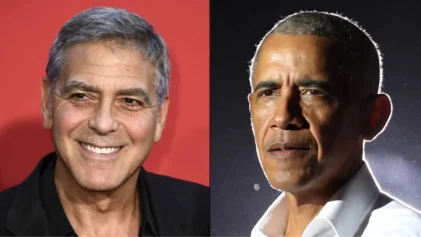The state that first introduced phrases like “hanging chad” to the American lexicon during the contested 2000 presidential election is again in the national glare because of systemic voting problems.
It wasn’t until Thursday that officials in Florida finished counting the unexpected surge of more than 54,000 absentee ballots in heavily populated Miami-Dade County. The delay in their counting has held up the final tally in the presidential race between President Barack Obama and Republican challenger Mitt Romney.
The president enjoyed an Electoral College rout of the former Massachusetts governor on Tuesday night, meaning that Florida’s 29 electoral votes would not change the race’s outcome either way.
The county’s total election results – including provisional ballots that still must be counted – will be completed by Friday.
Florida remains the only state not to declare its presidential winner, and several tight local elections hang in the balance.
The fallout has left Florida the final much-mocked, but blank spot on the long-decided Electoral College map.
Elections supervisors and Miami-Dade Mayor Carlos Gimenez acknowledged a range of problems at a “handful” of sites – topped by a lengthy ballot and poorly organized precincts. But they also argued that no more than a half-dozen of the county’s 541 polling places experienced severe waits, including the Brickell Avenue area of downtown Miami, West Kendall, Country Walk, Goulds and Homestead.
Deputy supervisor of elections Christina White defended the county’s overall handling of the election, noting that 90 percent of precincts were closed by 10:45 p.m.
“We think Election Day was largely a success,’’ she said.
Still, the last vote was cast at 1:30 a.m. – after Republican challenger Mitt Romney had delivered his concession speech. Gimenez called those handful of long lines “inexcusable.’’ He said he would ask Elections Supervisor Penelope Townsley for a detailed report, convene a task force to examine problems, and press Gov. Rick Scott and lawmakers to extend early voting days and sites. For future presidential elections, he also wants to double or triple the number of early voting sites.
“Obviously we didn’t do something right in those precincts,’’ he said. “It’s not the way we should treat our citizens.’’
The problems drew fire from frustrated voters, voting rights groups and political leaders from both parties. Though there were long lines elsewhere in the state, including Orlando, no reports came close to matching the grinding delays in Miami-Dade.
“There are many Third World countries that would never ask their citizens to stand in line for six to seven hours to cast their ballots,’’ said Deirdre Macnab, president of the League of Women Voters Florida.
Macnab, as well as Gimenez, put some of blame on the Republican-controlled Florida Legislature, which had laden the ballot with the full text of 10 complicated amendments, and on Scott, who had rejected appeals from the League and Democrats to extend early voting days from eight to 14.
But outgoing Miami-Dade Commission Chairman Joe Martinez, who lost a mayoral race to Gimenez, said elections supervisors should have planned better after complaints poured in regarding long lines during early voting.
During a radio interview with WLRN, the Miami Herald’s news partner, U.S. Rep. Ileana Ros-Lehtinen, R-Miami, summed up her views of the long lines: “This election was a disaster.’’
A range of problems contributed to the long lines in Miami-Dade, and the delay in tallying absentee ballots that flooded in on Monday and Tuesday. Turnout was only a minor factor, with just an eight percent increase in Election Day voters over the number from 2008, a presidential race with few problems.
Though the state’s voting problems didn’t wind up affecting the presidential race, as they did in 2000, the long lines still drew national attention because of Florida’s influential status with 29 electoral votes. During his victory speech in Chicago, President Obama thanked voters who waited in line “for a very long time,’’
“By the way,’’ he added, “we have to fix that.’’


